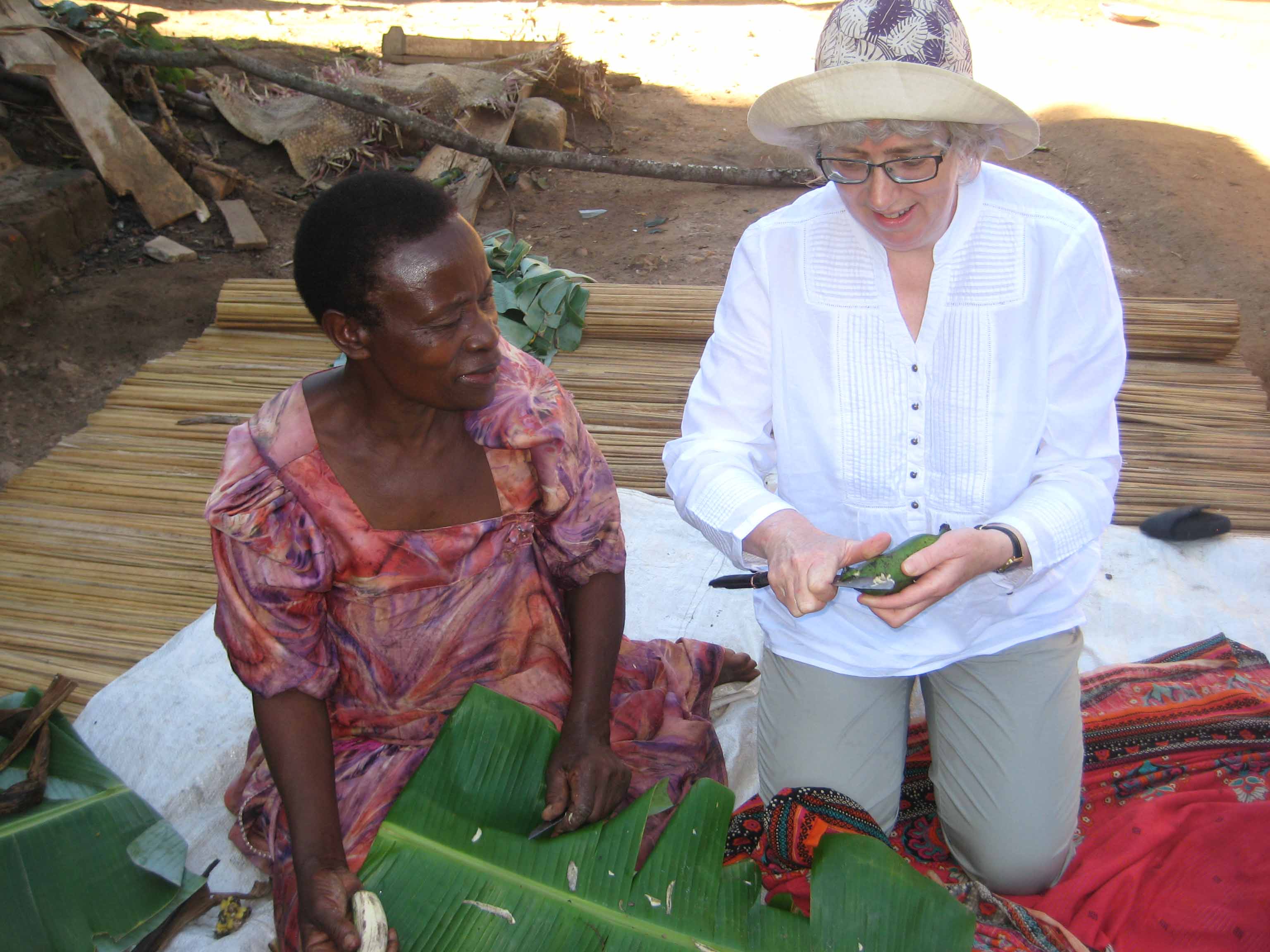
Diane Simms visited the Diocese of Central Uganda in 2015 as part of the City Deanery Uganda Link. Like her fellow travelers she had the privilege of staying with a Ugandan couple and sharing their lives. Read an extract from her reflections:
"Keren and I were delighted to stay at the home of a couple in their 70s called Fred and Norah in Central Buganda. Fred is a retired primary headteacher, teacher trainer, farmer, Diocesan head of laity. Like many Ugandans I met, Fred willingly juggles several roles with energy, patience and good humour. Norah is a retired primary teacher who manages her plantation with enthusiasm and is keen to teach a variety of life skills to her grandchildren.
One of Fred's favourite prayers was this one:
Lord, make us masters of ourselves, that we may be the servants of others.
Visiting another culture involves a good portion of self-discipline in trying not to freak out at unfamiliar sights, sounds and smells. But I have to admit that Bukandula village in Central Buganda initially felt, smelt and sounded like an alien world to me. The first morning I remember the shock of being woken up by the Muslim call to prayer at 5.30 in the morning, booming over a loudspeaker from the local village. (Other messages over the speaker included: "Onions for sale" and "A social worker is here to inspect homes today")
Fred took us on a tour around the village. A mixture of things struck me. The smells of dust, petrol, rotting meat and smoking fish, the sight of bundles of old clothes for sale, small shops with hardly anything for sale, motorbike taxi drivers staring at us out of the boredom of waiting around for someone to give a lift to, women waiting for people to buy the small stack of tomatoes or avocados that they had for sale.
A lot of people looked as if they were waiting for something to happen. People would say 'Bazungu, bazungu' (white people) when we walked past. Keren and I were either a focus of curiosity or a source of amusement. If I am honest, I felt like a duck out of water on my first day in Bukandula.
I learnt a lot from walking around Bukandula with our host Fred. I noticed he had time for everyone and could connect with vastly different people: the young, the old, the fashion conscious hairstylists, the police, the drinkers in the back street, the stall holders, mill workers and his Catholic and Muslim neighbours. I realised we were staying with someone who was a real pillar of the community and who works hard to spread neighbourliness. By the end of the week we were ambling through the village quite casually and someone even lent me their bike to have a ride on.
In Uganda our fears of being among strangers didn't get much time to catch hold, because we could feel the warmth of people's welcome. A common chant that rang out when we met children was this: 'You are most welcome.' There would be vigorous drumming, singing and dancing and people smiling. Greeting people properly is something Ugandans take very seriously and it isn't done in a rush. Because of the warmth of the Ugandan welcome we could relax and trust people for our well-being.
"We are at our most human when we know ourselves to be dependent on others"
'Who is my neighbour?' Pastoral Letter from House of Bishops prior to May 2015 Election